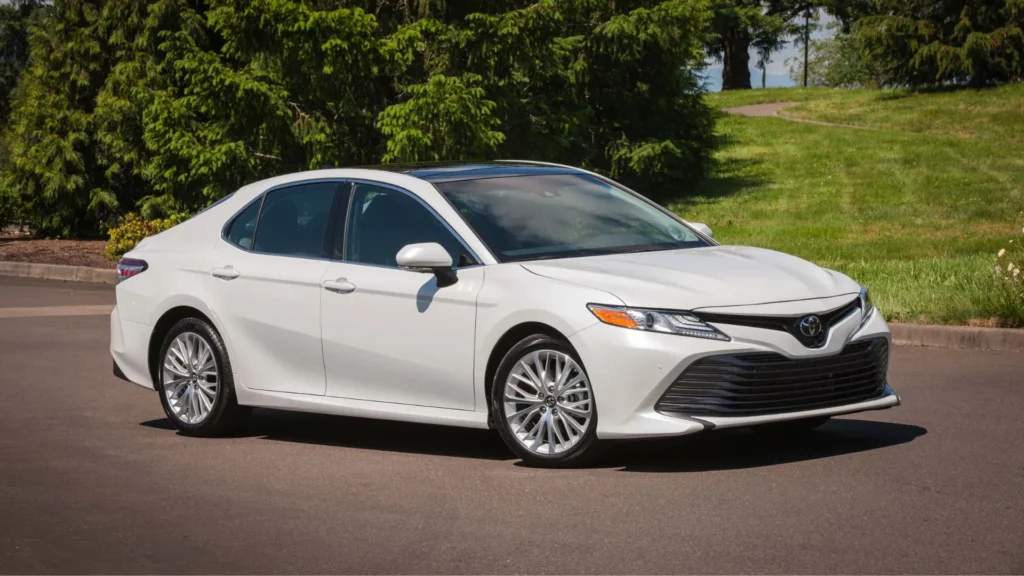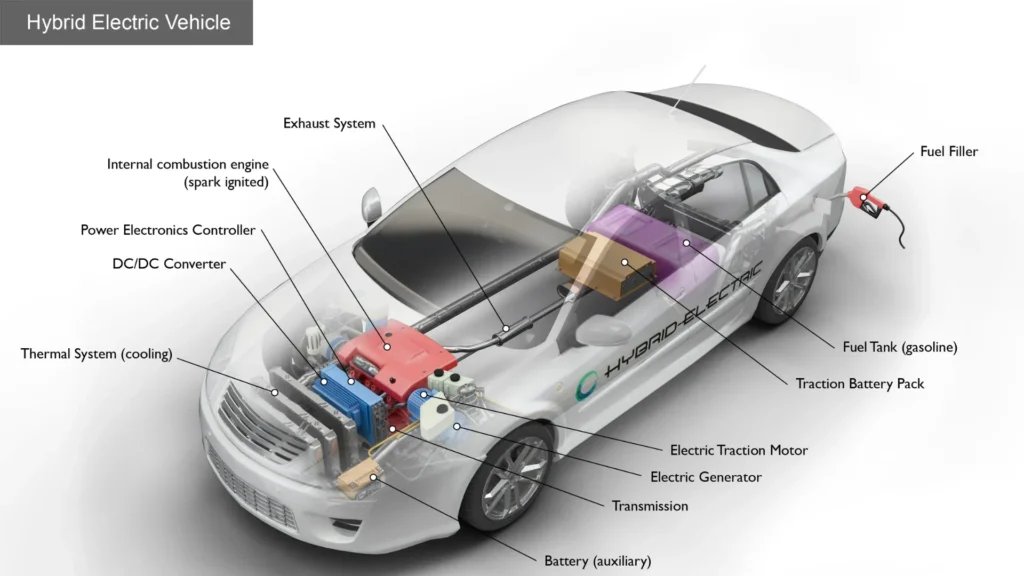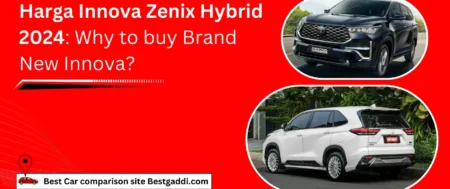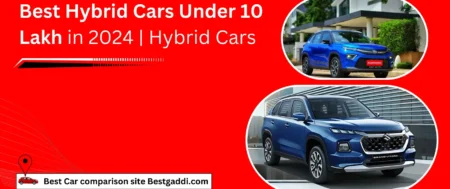Explore the best hybrid cars under 10 lakh for 2024-2025, featuring top models and eco-friendly performance without the hefty price tag.
Table of Contents
Introduction
In today’s rapidly evolving automotive landscape, hybrid cars have emerged as a beacon of hope for eco-conscious drivers and budget-savvy consumers alike. If you’re looking to reduce your carbon footprint without breaking the bank, you’ve come to the right place! In this article, we’ll explore the best hybrid cars under 10 lakh, highlighting their features, specifications, and why they are a fantastic choice.

Why Choose a Hybrid Car?
Benefits of Hybrid Cars
Hybrid cars combine the best of both worlds: a traditional internal combustion engine and an electric motor. This dual system not only boosts fuel efficiency but also minimizes emissions, making them an environmentally friendly option. Imagine driving a car that not only saves you money on fuel but also contributes to cleaner air—sounds great, right?
Environmental Impact
One of the most compelling reasons to consider a hybrid vehicle is its positive impact on the environment. Hybrid cars produce fewer greenhouse gases compared to their petrol or diesel counterparts. By choosing a hybrid, you’re not just investing in a car; you’re also making a conscious choice to support a more sustainable future.
Why Focus on Cars Under 10 Lakh?
Budget-Friendly Options
When it comes to car buying, price is a significant factor. The good news is that many manufacturers are now offering hybrid models within the budget of 10 lakh. This means you don’t have to compromise on technology or efficiency while keeping your finances in check.
Value for Money
Choosing a hybrid car under 10 lakh doesn’t mean skimping on features or performance. In fact, these cars often come packed with advanced technologies, comfort features, and impressive fuel efficiency, making them excellent value for your hard-earned money.
Key Features to Look For
Fuel Efficiency
One of the primary attractions of hybrid cars is their fuel efficiency. With rising fuel prices, a hybrid car can save you a significant amount of money at the pump. Look for models that offer high mileage ratings.
Comfort and Technology
Today’s hybrid cars are not just efficient; they are also comfortable and equipped with the latest technology. From touchscreen infotainment systems to advanced safety features, these cars often boast an impressive array of amenities.
Top companies providing hybrid cars in India
Here’s a list of top companies providing hybrid cars in India, along with a brief overview of what they offer:
| Company | Overview |
|---|---|
| Toyota | Known for pioneering hybrid technology, Toyota offers models like the Toyota Glanza Hybrid, focusing on reliability and fuel efficiency. |
| Maruti Suzuki | India’s largest car manufacturer provides popular hybrids like the Maruti Suzuki Baleno Hybrid, emphasizing affordability and low maintenance. |
| Honda | Honda offers hybrids such as the Honda City Hybrid, known for advanced technology and performance combined with fuel efficiency. |
| Hyundai | Hyundai provides models like the Hyundai Aura Hybrid, featuring modern designs and a balance of performance and eco-friendliness. |
| Kia | Kia’s hybrid offerings, like the Kia Sonet Hybrid, focus on stylish designs and feature-rich interiors, catering to younger buyers. |
| MG Motors | MG offers models like the MG Hector Hybrid, focusing on technology and premium features, appealing to urban consumers. |
| Tata Motors | Tata has begun introducing hybrid variants, emphasizing sustainability and innovative designs in its range of vehicles. |
| Ford | Though less prominent in the hybrid market, Ford is entering with models like the Ford EcoSport Hybrid, catering to SUV enthusiasts. |
| Volkswagen | Volkswagen offers hybrid options within its lineup, focusing on quality engineering and performance. |
| Mahindra | Mahindra is working on hybrid technology, focusing on utility and performance in vehicles like the Mahindra XUV700 Hybrid. |
These companies are leading the hybrid car market in India, providing a variety of options to cater to different consumer needs and preferences. Let me know if you need more detailed information about specific models or features!
Top Hybrid Cars Under 10 Lakh





Toyota Camry
Price and Specifications
- Price: Approx. ₹9.8 lakh
- Engine: 2.5L 4-cylinder
- Power: 176 bhp
- Fuel Efficiency: 18 km/l
Features
- Luxurious interiors
- Advanced safety features
- Touchscreen infotainment system
Official Link: Camry | Toyota Camry | Toyota Camry Hybrid Car (toyotabharat.com)
Honda City Hybrid
Price and Specifications
- Price: Approx. ₹9.5 lakh
- Engine: 1.5L i-VTEC
- Power: 126 bhp
- Fuel Efficiency: 26.5 km/l
Features
- Spacious cabin
- Multi-zone climate control
- Honda Sensing technology for safety
Official Link: 2024 Honda City e:HEV Hybrid Car Price & Features | Honda Cars India (hondacarindia.com)
Maruti Suzuki Celerio
Price and Specifications
- Price: Approx. ₹6.5 lakh
- Engine: 1.0L K-series
- Power: 67 bhp
- Fuel Efficiency: 26.6 km/l
Features
- Compact design
- Smart reverse parking sensors
- User-friendly infotainment system
Official Link: Maruti Suzuki Celerio | Features, Reviews, Specifications, Colours and Interior
Hyundai Ioniq
Price and Specifications
- Price: Approx. ₹9.0 lakh
- Engine: 1.6L GDI
- Power: 104 bhp
- Fuel Efficiency: 22.4 km/l
Features
- Sleek design
- Panoramic sunroof
- Advanced navigation system
Official Link: Hyundai IONIQ 5 Car – The All-Electric SUV: Images, Colours | Hyundai India
Ford EcoSport Hybrid
Price and Specifications
- Price: Approx. ₹9.9 lakh
- Engine: 1.5L Ti-VCT
- Power: 121 bhp
- Fuel Efficiency: 21 km/l
Features
- SUV-like stance
- 6 airbags for safety
- Touchscreen with Apple CarPlay and Android Auto
Official Link: Ford EcoSport – Price, Reviews, Pics, Specs & Mileage | Ford India
Best hybrid cars under 10 lakh for 2024-2025
Here’s a comparison table for the best hybrid cars under 10 lakh for 2024-2025:
| Model | Price (Approx.) | Engine | Fuel Efficiency | Power Output | Key Features |
|---|---|---|---|---|---|
| Toyota Glanza Hybrid | ₹8.5 Lakh | 1.2L, 4-Cylinder | 22.35 km/l | 90 bhp | Smart Hybrid Technology, Touchscreen Infotainment |
| Maruti Suzuki Baleno Hybrid | ₹9.5 Lakh | 1.2L, 4-Cylinder | 22.94 km/l | 89 bhp | Mild Hybrid System, ABS, EBD |
| Honda City Hybrid | ₹9.8 Lakh | 1.5L, 4-Cylinder | 26.5 km/l | 126 bhp | e-CVT Transmission, Advanced Safety Features |
| Hyundai Aura Hybrid | ₹9.0 Lakh | 1.2L, 4-Cylinder | 21.4 km/l | 83 bhp | Smart Driving Modes, Eco-Friendly Engine |
| Kia Sonet Hybrid | ₹9.7 Lakh | 1.0L Turbo, 3-Cylinder | 20.3 km/l | 120 bhp | Sunroof, UVO Connect, Smart Air Purifier |
Note:
- Prices and specifications are approximate and may vary based on location and dealership.
- Fuel efficiency is based on manufacturer claims and may vary based on driving conditions.
Engine Specifications of Hybrid Cars

1. Types of Hybrid Systems
Hybrid cars typically use one of the following systems, which combine an internal combustion engine (ICE) with one or more electric motors:
- Mild Hybrid: This system uses a smaller electric motor to assist the internal combustion engine, improving fuel efficiency and reducing emissions without enabling full electric driving.
- Full Hybrid: Full hybrids can operate on the electric motor alone, the internal combustion engine alone, or a combination of both. They offer greater electric-only range and efficiency.
- Plug-in Hybrid (PHEV): PHEVs have larger batteries that can be charged from an external power source, allowing for longer electric-only driving ranges compared to full hybrids.
2. Engine Components
- Internal Combustion Engine (ICE): Typically ranges from 1.0 to 2.5 liters in displacement, depending on the vehicle’s size and performance.
- Configuration: Common configurations include inline-3, inline-4, and V6 engines.
- Power Output: The power output of the ICE can range from 70 to over 200 horsepower, depending on the hybrid model.
- Electric Motor(s):
- Power Output: Electric motors in hybrid cars usually produce between 20 to 150 horsepower. The combined output of the electric motor and the ICE can significantly enhance overall performance.
- Battery Capacity: The battery capacity for hybrid cars typically ranges from 1.5 kWh to 20 kWh for PHEVs. Full hybrids generally have smaller batteries, while plug-in hybrids feature larger ones to support extended electric-only driving.
3. Transmission
- Transmission Types:
- CVT (Continuously Variable Transmission): Many hybrids use a CVT to provide a smooth driving experience and optimize fuel efficiency.
- Automatic Transmission: Some hybrids feature traditional automatic transmissions, particularly those that are mild or full hybrids.
4. Fuel Efficiency
- Miles Per Gallon (MPG): Hybrid cars are known for their impressive fuel efficiency, often achieving 40 to 60 MPG combined, depending on the model and driving conditions.
- Electric-Only Range: PHEVs can typically drive between 20 to 50 miles on electric power alone before switching to hybrid mode.
5. Emissions
- CO2 Emissions: Hybrid vehicles usually produce lower CO2 emissions compared to traditional gasoline vehicles. Emissions can range from 30 to 100 grams per kilometer, depending on the specific hybrid model and driving style.
Summary:
The engine specifications of hybrid cars reflect their innovative approach to combining traditional combustion engines with electric power. By optimizing fuel efficiency and reducing emissions, hybrid vehicles provide a sustainable alternative to conventional cars while offering impressive performance and versatility. Whether you choose a mild hybrid, full hybrid, or plug-in hybrid, understanding these specifications can help you make an informed decision based on your driving needs.
Inside Looks of Hybrid Cars

1. Dashboard and Instrument Cluster
- Digital Display: Most hybrid cars feature a modern dashboard with a digital display that provides crucial information about speed, fuel economy, battery status, and electric motor usage.
- Eco-Meter: Many models have an eco-meter that helps drivers monitor their driving efficiency, encouraging fuel-saving habits.
- Infotainment System: Touchscreen infotainment systems are common, offering navigation, smartphone integration (Apple CarPlay, Android Auto), and various multimedia options.
2. Seating and Interior Materials
- Comfortable Seats: Hybrid cars typically feature ergonomic seats designed for comfort, often with ample lumbar support, making them suitable for both short commutes and long drives.
- Eco-Friendly Materials: Some hybrids use sustainable materials for upholstery, such as recycled plastics or natural fibers, to align with their environmentally friendly ethos.
- Spacious Cabin: Many hybrid models provide a spacious cabin with sufficient headroom and legroom for both front and rear passengers.
3. Storage and Cargo Space
- Trunk Space: Hybrid cars generally offer a reasonable trunk space, although the design may vary between models. Some hybrids have batteries stored in the trunk, which can slightly reduce cargo capacity.
- Foldable Rear Seats: Many hybrids come with rear seats that can fold down to expand cargo space, allowing for larger items to be transported easily.
4. Climate Control and Comfort Features
- Automatic Climate Control: Most hybrid cars include automatic climate control systems, which adjust the temperature based on passenger preferences for added comfort.
- Heated and Ventilated Seats: Higher-end models often offer heated and ventilated seats, enhancing comfort in varying weather conditions.
- Noise Insulation: Hybrids typically have good noise insulation to provide a quiet driving experience, especially when operating in electric mode.
5. Safety and Driver Assistance Features
- Safety Technology: Many hybrid cars come equipped with advanced safety features, such as adaptive cruise control, lane departure warning, and automatic emergency braking.
- 360-Degree Cameras: Some models offer a surround-view camera system that aids parking and maneuvering in tight spaces.
6. Charging Ports and Power Outlets
- USB Ports: Hybrid cars often feature multiple USB ports for charging devices, catering to the needs of tech-savvy drivers.
- 12V Power Outlet: Many models include a 12V power outlet for additional convenience, allowing you to power devices or accessories.
Summary:
Hybrid cars are designed with a blend of comfort, technology, and eco-friendliness in mind. The interior looks of these vehicles offer a modern aesthetic with user-friendly features that enhance the driving experience while promoting sustainability. Whether you are looking for a compact model or a spacious family hybrid, you can expect thoughtful design and functionality inside these innovative vehicles.
How to Buy a Hybrid Car
1. Research and Understand Hybrid Cars
- Types of Hybrids: Learn about different types of hybrid cars, including full hybrids, mild hybrids, and plug-in hybrids, to determine which suits your needs.
- Fuel Efficiency: Investigate the fuel efficiency ratings of various hybrid models to compare how much you can save on fuel.
2. Set a Budget
- Purchase Price: Determine how much you are willing to spend, considering the price range of hybrid cars under 10 lakh.
- Additional Costs: Account for other expenses like insurance, taxes, registration fees, and maintenance costs.
3. Identify Your Needs
- Usage: Consider how you plan to use the car. Will it be for daily commuting, long trips, or occasional use?
- Space Requirements: Assess your space needs for passengers and cargo to help you choose between compact or larger hybrid models.
4. Explore Financing Options
- Loan Options: Look into financing options such as bank loans, credit unions, or dealership financing. Compare interest rates and terms.
- Government Incentives: Research any available government incentives or rebates for purchasing hybrid cars in your area.
5. Visit Dealerships
- Test Drive: Visit multiple dealerships to test drive different hybrid models. Pay attention to comfort, handling, and features.
- Compare Models: Take notes on various models, including their features, prices, and performance during test drives.
6. Check for Reviews and Ratings
- Consumer Reviews: Look up reviews and ratings from other buyers to get insights into the reliability and performance of specific models.
- Expert Opinions: Consider automotive expert reviews for a professional evaluation of the hybrids you are interested in.
7. Evaluate Trade-in Options
- Existing Vehicle: If you have an existing vehicle, check its trade-in value to potentially reduce the cost of your new hybrid car.
8. Negotiate the Price
- Bargaining: Don’t hesitate to negotiate the price with the dealer. Research the market value of the model you want to ensure you get a fair deal.
9. Finalize the Purchase
- Review Documents: Carefully review all purchase documents, including warranties and service agreements, before signing.
- Registration and Insurance: Complete the registration process and secure insurance coverage for your new hybrid car.
10. Take Delivery
- Inspect the Car: Before taking delivery, inspect the vehicle to ensure it is in good condition and has all the features you agreed upon.
- Familiarize Yourself: Spend time getting to know your new hybrid car’s features, controls, and maintenance requirements.
Summary:
Buying a hybrid car involves careful research, budgeting, and evaluation of your needs. By following these steps, you can make an informed decision and find a hybrid vehicle that suits your lifestyle and budget.
Conclusion
In a world increasingly focused on sustainability, hybrid cars represent a fantastic option for environmentally conscious drivers. The models mentioned above, all priced under 10 lakh, offer impressive specifications, features, and fuel efficiency without compromising on comfort. So, whether you’re a city dweller looking for a compact car or someone in search of a feature-packed hybrid SUV, there’s a perfect fit for everyone!
FAQs
What is a hybrid car?
A hybrid car combines a traditional internal combustion engine with an electric motor, enhancing fuel efficiency and reducing emissions.
Are hybrid cars expensive to maintain?
Generally, hybrid cars have lower maintenance costs due to their efficient systems, although battery replacements can be costly if needed.
Can I drive a hybrid car in electric mode?
Yes, many hybrids can operate solely on electric power for short distances, especially at low speeds.
Do hybrid cars have lower emissions?
Yes, hybrid cars produce fewer emissions compared to traditional petrol or diesel vehicles, making them more environmentally friendly.
How long do hybrid batteries last?
Most hybrid batteries last between 8 to 15 years, depending on usage and maintenance.
What are the benefits of buying a hybrid car?
Hybrid cars offer improved fuel efficiency, lower emissions, and often qualify for government incentives, making them an economical and eco-friendly choice.
How does a hybrid car work?
A hybrid car combines a conventional internal combustion engine with an electric motor, allowing it to switch between power sources for optimal performance and efficiency.
Are hybrid cars more expensive to maintain?
While hybrid cars can have slightly higher maintenance costs due to their complex systems, many models are designed for durability, and savings on fuel can offset these costs.
Can hybrid cars run on electricity alone?
Some hybrid cars can run on electric power alone for short distances, while others rely on the internal combustion engine for longer trips or higher speeds.
What is the difference between a hybrid car and an electric car?
Hybrid cars use both a gasoline engine and an electric motor, while electric cars run entirely on electricity, requiring charging from an external source.
What is the average lifespan of a hybrid car battery?
The lifespan of a hybrid car battery typically ranges from 8 to 15 years, depending on usage and maintenance, with many manufacturers offering warranties for up to 10 years.
Are hybrid cars suitable for long-distance travel?
Yes, hybrid cars can be suitable for long-distance travel, as they combine the fuel efficiency of electric power with the range of a gasoline engine.
What government incentives are available for hybrid car buyers in India?
In India, hybrid car buyers may benefit from reduced GST rates, state-level subsidies, and exemptions from road tax, depending on local policies.
Which hybrid car has the best resale value?
Typically, brands like Toyota and Honda have higher resale values for their hybrid models due to their reputation for reliability and fuel efficiency.
Are there any disadvantages to owning a hybrid car?
Potential disadvantages include higher upfront costs, limited electric-only range, and the need for occasional battery replacements, which can be expensive.

